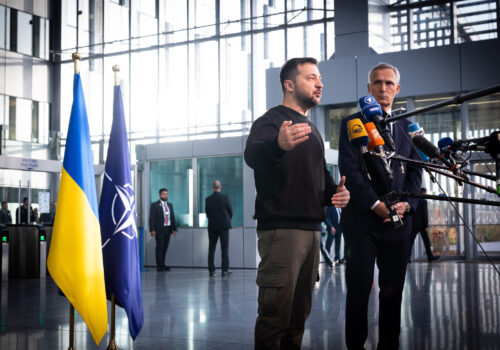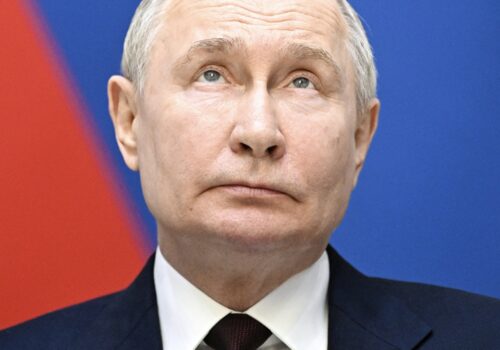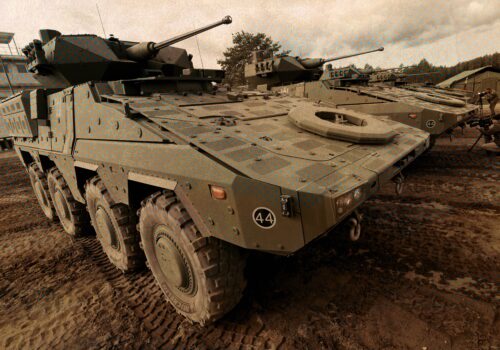Who’s at 2 percent? Look how NATO allies have increased their defense spending since Russia’s invasion of Ukraine.
This week, NATO allies will gather in Washington DC, to mark the seventy-fifth anniversary of the Alliance. Many of those allies have historically failed to meet the NATO target, set in 2014, of allocating 2 percent of their gross domestic product (GDP) to defense, even as the United States in particular has pushed for more defense investment for the sake of burden sharing across the Alliance. However, this year, a record number of countries have stepped up. Out of the thirty-two NATO allies, twenty-three now meet the 2 percent target, up from just six countries in 2021.
This surge in defense spending follows Russia’s full-scale invasion of Ukraine in February 2022. The war in Ukraine has prompted an unprecedented 18 percent increase in defense spending this year among NATO allies across Europe and Canada. In total, NATO countries now meet the 2 percent target, together spending 2.71 percent of their GDP on defense. This creates positive momentum and success to build on for the Washington summit, which is expected to highlight the Alliance’s collective strength and focus on deeper integration with Ukraine.
Poland stands out as the biggest spender, allocating 4.12 percent of its GDP to defense. Sweden has also increased its defense spending dramatically since the 2022 Russian invasion of Ukraine. The Washington summit will witness Sweden’s first participation in a NATO summit as an official NATO member, following its accession in March.
As NATO celebrates its seventy-fifth anniversary, the large increase in defense spending can help renew the Alliance’s unity and strength to continue supporting Ukraine and be prepared for the future.
Clara Falkenek is an intern with the GeoEconomics Center.

At the intersection of economics, finance, and foreign policy, the GeoEconomics Center is a translation hub with the goal of helping shape a better global economic future.
Further reading
Sun, Jul 7, 2024
The US and Europe would be safer with Ukraine in NATO. Our war games showed why.
New Atlanticist By
The Atlantic Council recently held a series of tabletop exercises to examine future Russia-Ukraine conflict scenarios and their implications for Western security. The results are clear.
Wed, Jun 12, 2024
A Putin summer surprise for NATO? Worries are growing.
Inflection Points By Frederick Kempe
The Russian president likely wants to undercut NATO’s upcoming summit in Washington. The Alliance should ready a surprise of its own.
Mon, Jul 1, 2024
NATO allies need a better approach to industrial strategy
New Atlanticist By Kristen Taylor
The Washington summit next week is an opportunity for the Alliance to send clear demand signals to industry and develop more coordinated, effective industrial strategies.


